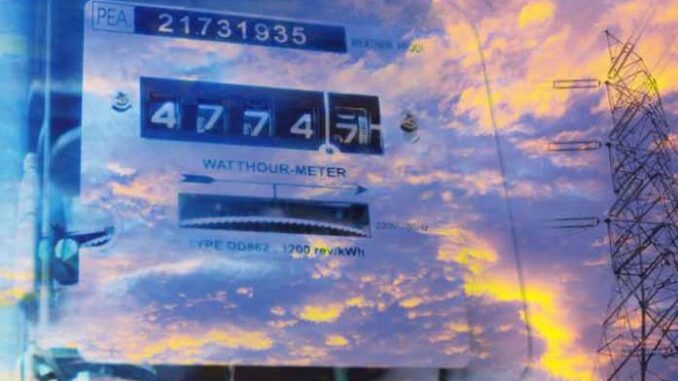
Several Arizona lawmakers on both sides of the aisle are joining Rep. Gail Griffin (R-LD14) in support of House Bill 2101, which would do away with some current state laws that govern competition among electric utilities.
HB2101 made it out of the House Committee on Natural Resources, Energy, and Water last week on a 10 to 2 vote. Of the 36 lawmakers who co-sponsored the bill with Griffin, one-third are Democrats.
Arizona currently has regulated electricity markets governed by laws and regulations in place for the last two decades to promote electric generation competition. However, a competitive market has never materialized, leaving Arizonans with no choice in their electricity provider.
If HB2101 is enacted, it would repeal or amend more than 20 statutes, including several which critics of the current laws argue actually hinder electric energy competition in Arizona. Other supporters of Griffin’s bill say it could provide a much needed clean slate for looking into different ways to achieve more choice for consumers.
However, many opponents of HB2101 believe it will protect electric utilities already in business in Arizona at the detriment of consumers. And some opponents say the bill will make it harder for new energy providers to enter the market, including solar projects and various renewable energy options which have widespread public support.
HB2101 covers several areas related to electric energy policy and reliability. One provision directs public power entities to adopt policies for handling consumer complaints and put consumer protection measures in place, while another makes it easier for rate decisions to be challenged.
It would also become permittable under the bill for electric cooperatives to collaborate with other entities in acquiring and disposing of electricity. And some authority of the Arizona Corporation Commission (ACC) which regulates utilities -including electric generation competition- would be deleted.
But the main focus of the HB2101 is the repeal of several provisions of state law which provided the framework for electric generation service competition more than 20 years ago.
In the 1990s, the ACC debated rules for retail electric competition intended to change the retail sale of electric generation and related services from a system of regulated monopolies to a competitive market.
Formal rules were issued in 1996 and revised through 2001, but former lawmaker and ACC chair, Bill Mundell, admits a truly competitive market for electric generation services never materialized, in part because a court invalidated some of the rules for violating the Arizona Constitution.
The result, says Mundell, is a system in which the ACC sets a provider’s maximum rates while allowing for consumer choice.
“It’s not really a totally free market, that’s why I call it regulated competition,” Mundell said recently. “Because the commissioners still decide what the maximum rate should be. So it’s not wide open – it’s regulated competition with consumer protections.”
Most critics of Arizona’s electric energy competition regulations agree the current system is not optimal, but there is no universal agreement on how to address the problem. In the meantime, support has grown across the state in recent years for a change, with the Energy Choice Coalition (ECC) recently described the state as “ripe for progress” on the issue.
“A victory toward energy choice for consumers would not just be a win for residents of the Grand Canyon State,” according to the ECC, which added it “would also be a sign for continued optimism and success of activism and action for energy choice advocates everywhere.“
Griffin’s bill is promoted as providing the type of progress necessary to protect ratepayers while ensuring prices remain low and grid reliability remains high. It is supported by several energy companies such as Salt River Project, UNS Energy Corp., Arizona Public Service Company, and Grand Canyon State Electric Coop Association.
But many companies and organizations have taken positions against HB2101 in its current form, including the Goldwater Institute for Public Policy Research, the Arizona Free Enterprise Club, Tesla Motors, NRG Energy, Exellon Generation Company, and the Arizona Solar Energy Industries Association.
The current dispute over electric energy generation competition is the latest in a series of disagreements in recent years between some lawmakers and the five elected ACC members. Additional legislation introduced this year takes aim at other areas of ACC authority.
It is an area that Bob Burns, another former state lawmaker and ACC member, takes issue with. He has often spoken out against the Legislature getting too immersed in the activities of the ACC, which is established by the state constitution.
Burns is a supporter of consumer choice and consumer protection. He sees the necessity for the ACC to remain involved in deciding who is proving electric generation in Arizona.
“I think the Commission has a very critical place in this discussion as to who would be the ones that develop the requirements of the [electric] generators,” Burns said recently.
